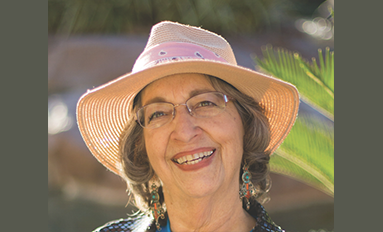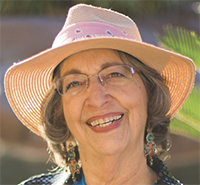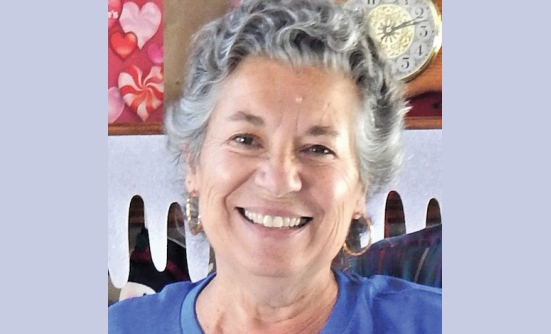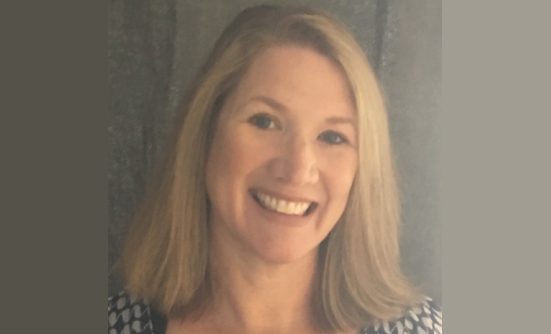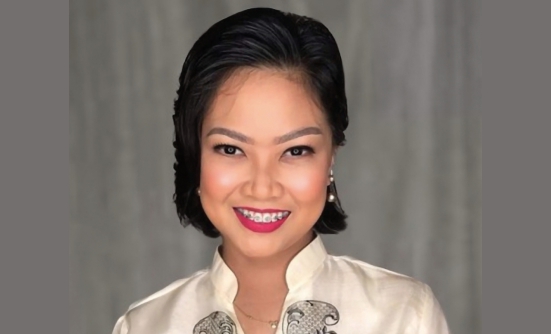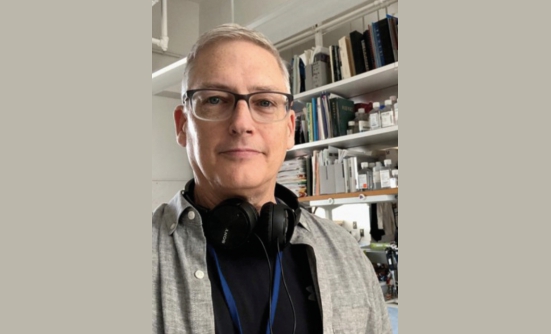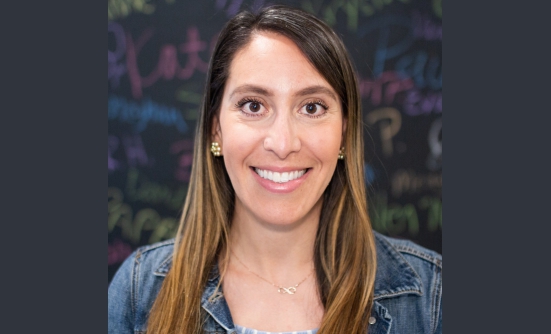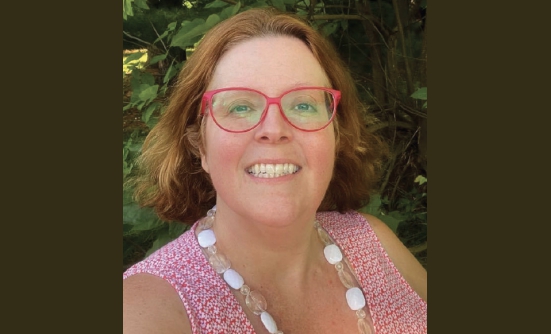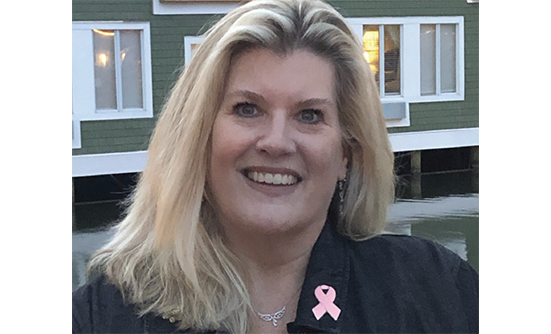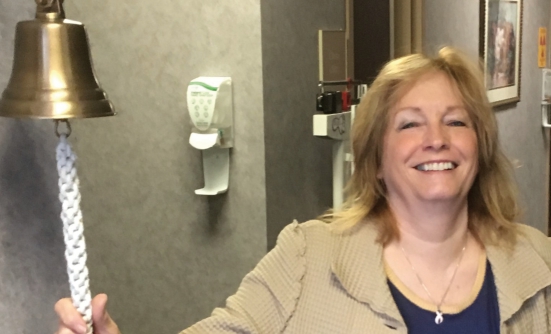“The results confirm you have breast cancer.” The oncologist spoke softly, as if to cushion the blow. He paused, waiting for a reaction, I presume. I couldn’t conjure up a single response or
register one facial emotion. (Where’s an emoji when you need one?) I’ve read since then that a lot of women burst into tears. I couldn’t process what this might mean for my life fast enough to go straight to grief.
My daughter, who was with me, had the presence of mind to start asking questions. The sound of the planets spinning (or something) drowned out the doctor’s first reply. He repeated, “You have an aggressive form of breast cancer called triple-negative.”
Taking It All In, or Not
“Oh,” was the entirety of my reply. My brain had begun functioning again, although not to full capacity. I was thinking, “Negative is bad, right? So, if this is ‘triple’-negative…”
And so it began. I started to process the news. Then I had to hear more bad news: “I’m also sorry to say that your cancer has metastasized to your right lung.” I didn’t have a medical dictionary on me. I probably looked puzzled. The doctor explained, “That means your cancer has already spread to another area, in this case your lung. We call this stage IV cancer.”
“Really?” I responded, evidently losing my rather extensive vocabulary. So, I had cancer (bad) that was an aggressive type (bad) in an advanced stage (bad). Then came the only good news. New treatment regimens are highly promising—I might be able to beat this after all.
The doctor explained all the plans we could pursue to attack this disease. The only one with any real hope of success entailed months of chemotherapy, followed by a mastectomy. Then, for my lung, radiation of some kind would be necessary; he thought perhaps CyberKnife, a robotic radiation therapy. I didn’t even ask. Every term he used sounded scary, but chemotherapy remained my biggest fear.
The Infusion Room
When the nurse took me on a tour of the facility to show me the treatment room, I stopped in my tracks. I had never seen anything like it. A room full of people in recliners, IV bags above them, pumping poison directly into their veins.
How did I conclude it was poison? The nurse had to wear a hazardous material gown and gloves to administer the drugs. Unconsciously, I began backing out of the room. I was getting out of there, far away.
I told the doctor I would get back to him. He tried to explain that time was of the essence, because the tumor would be growing. I couldn’t think. I just needed to leave that room of people with tubes that reminded me of a scene in the movie “The Matrix.”
Other people might have had a more reasonable response, but I hadn’t been around medical procedures much. The entire process seemed simply shocking. I told my daughter that I won’t be doing this. Nope. I’m going to go see Jesus. I’m all right with that.
Reflection
When I took the hour-long drive home to my small town, beyond Las Vegas, I had time to reflect. “This was terrible. This was life-changing. This was the big ‘Cancer’ word. Might I die soon, or be disabled from chemo? Chemotherapy is not natural. I believe in natural cures. That’s why we have aloe vera growing in our yard and our own garden. Could there be a natural cure for this? Are there new alternatives my oncologist doesn’t know about?”
The questions swirled and thoughts morphed into giant fears. When I got home, I started researching, hoping to avoid chemotherapy. Although I did find several alternative treatments and clinical trials, none applied to my type of cancer.
For example, I discovered immunotherapy, which sounded so nicely natural, to use one’s own cells to fight the cancer. However, it was then being used for other types of cancer but not breast cancer. Well, so much for that idea. I found a clinic that, despite the medical jargon, was basically giving patients juices, very expensive juices. I finally faced the facts.
Facing the Facts
My oncologist said that I should make an appointment to have a port inserted on my upper left side to facilitate the administering of chemo drugs. I had never heard of a port. After it was explained to me, I never wanted to hear of one. Still, I went through the procedure.
I had to be awake. With all these sleeping drugs in the world—are they saving them? For what? I wanted to sleep through the process. I did the next best thing I learned as a 2-year-old child to make things go away—I shut my eyes.
Surprisingly, the procedure was over quickly. I felt brave and satisfied. Then, I looked down at my port, and another movie flashed in my mind, “Alien.” The weirdly shaped bump that looked like an alien creature was under my skin. I decided I simply wouldn’t look at it. If denial works, use it, I figured.
Writing Away Fear
My fears remained, so I started journaling to get a handle on my feelings. I’ve found writing to be an excellent tool for getting clarification. My vague and unnamed fears had to march up on the line and identify themselves. Although I thought my fears would comprise a long list, when I committed them to writing, there were only these 2:
- I am afraid I will be too tired or sick to do all the things I love, from quilting to playing with grandchildren.
- I am afraid of the chemo, which could poison so much more than the targeted cancer cells.
This seemed like a short list, but fears about losing my lifestyle and being sickened by chemo encompassed enormous topics for me.
I needed to de-stress. So, in my early morning quiet time of prayer and reading, I used my concordance to look up “fear” in the Bible. I found the rhetorical questions in Psalm 27:1 uplifting: “The Lord is my light and my salvation; whom shall I fear? The Lord is the strength of my life; of whom shall I be afraid?” Those questions made me realize that my fears weren’t cosmic. I had worries, not fears. Sometimes, I like to summarize verses in modern terms. For this verse, I wrote, “Don’t be afraid; God’s got this.”
Forging Ahead
The initially upsetting chemotherapy treatments became routine for 4 months. My tumor responded well, so the oncologist recommended surgery next. After discussing options with my surgeon, I decided that it was best for me to have a unilateral mastectomy, without reconstruction.
Everyone’s choices will be different, based on their age, lifestyle, and other considerations. I had already retired from my teaching position, so I had plenty of time to rest and recover. I then had the CyberKnife treatment for my tiny lung tumor.
It turns out that the only scary part about the procedure was the name. It was over in 3 days of treatments lasting less than 1 hour each. I’ve had multiple imaging scans over the past 2 years. Fortunately, they still show no evidence of disease. However, even after my first clear PET scan, I already knew I wanted to find a way to give back to others who are facing a life-changing diagnosis.
Giving Back
My surgeon, Dr. Chanu Dasari, had just launched a website as a compassionate outreach to cancer patients (www.silverlining.vegas). When he asked me to mentor the patients with cancer that he refers to me, I knew I had found the perfect way to help others.
Because I know what it is like not to have someone to talk to who has been through cancer, we have a sweet sisterhood of cancer survivors.
I love seeing women become more relaxed as they hear there is hope. I enjoy reassuring them as they ask questions starting with, “Is this normal?” I find myself back in a teaching role as I help educate women about what to expect, and what resources are available.
I also volunteer for the American Cancer Society, mentoring women on the phone. Their Reach To Recovery program connects cancer survivors with women who request a mentor.
Cancer truly has given me a gift—the chance to make a positive difference in the lives of others when they are vulnerable and afraid.
As Mahatma Gandhi wisely understood: “The best way to find yourself is to lose yourself in the service of others.”





